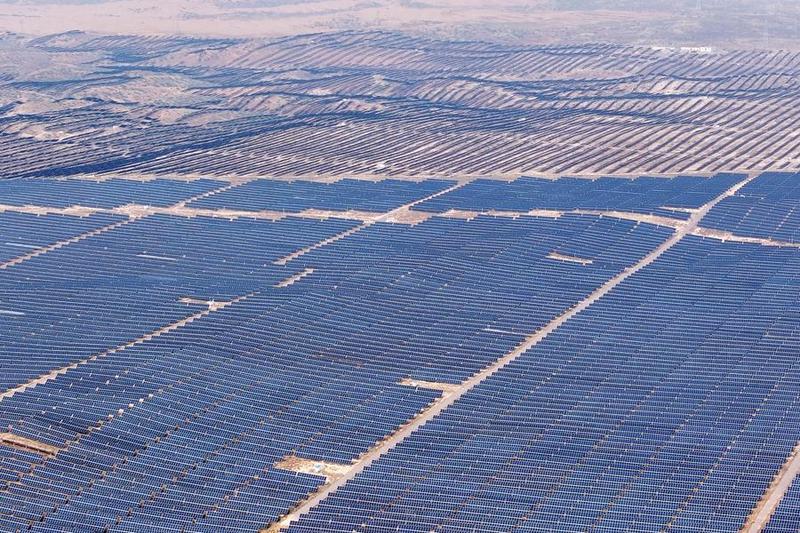Nation making rapid progress in renewables


China's green power trading volume surged nearly 50 percent year-on-year in the first five months, exceeding 220 billion kilowatt-hours, a dramatic increase that underscores the nation's rapid progress in its transition toward renewable energy sources, said industry experts.
The surge reflects a growing consumer preference for green energy, which is in turn driving investment in renewable energy projects and creating a strong incentive for further development and integration into the grid, said Lin Boqiang, head of the China Institute for Studies in Energy Policy at Xiamen University.
The scale of green power trading implies significant advances in renewable energy technologies and grid infrastructure. These advances are crucial for managing the intermittency of renewable energy sources and ensuring grid stability, he said.
According to data released by the China Electricity Council, the nationwide market-based power trading volume increased from 1.1 trillion kWh in 2016 to 6.2 trillion kWh in 2024, accounting for 63 percent of total electricity consumption, up from 17 percent, a significant shift toward market-driven resource allocation.
New energy sources are fully participating in market competition in China in recent years, driven by record-high installed capacity and power generation, it said.
In 2024, market-based trading of new energy power exceeded 1 trillion kWh, representing 55 percent of total new energy generation. This demonstrates the readiness of new energy sources for full participation in power market transactions, it said.
Yang Kun, executive vice-chairman of CEC, attributed the rapid growth of green power trading to rising green consumption demand.
He highlighted the environmental value of green power, its enhancement of corporate green competitiveness, and its positive contribution to the green and low-carbon transformation of the energy and power sector.
"China has significantly improved its grid infrastructure and capacity in recent years, with interprovincial transmission capacity exceeding 300 million kilowatts," he said.
"Accelerating the construction of a unified national power market and regular cross-provincial and cross-regional green power trading further optimizes power resource allocation nationwide."
China aims to establish a national unified power market by 2029 with a preliminary structure to be established by the end of this year, further integrating renewable energy sources while optimizing the distribution of power across the vast national grid.
A national unified power market is a system where electricity is bought, sold and distributed across the entire country in a standardized way. It connects all regions, ensuring equal access to power, promotes competition and allows for efficient pricing.
Through supportive policies and market mechanisms, the government has been pushing for wider green power trading to boost green power consumption in recent years.
As a result, the electricity certificates market saw explosive growth in 2024, with trading volume quadrupling, according to the National Energy Administration.
RE100, a global campaign involving more than 400 member businesses that have committed to eventually using 100 percent renewable electricity in their operations, said that China has become an attractive international market for companies' drive toward 100 percent renewable electricity.
It has recently granted unconditional recognition to China's green electricity certificates system, a "landmark achievement" that signals the international standing of the system, according to Wan Jinsong, deputy head of the administration.
Currently, 270 RE100 member companies purchase green electricity in China, said Helen Clarkson, CEO of Climate Group, which co-launched RE100.
RE100's unconditional approval shows the influence of China's GECs on the international stage, Clarkson said.
The GECs are the sole proof of the environmental attributes of renewable energy in China and serve as the only certificate for verifying renewable energy production and consumption. One certificate is generated for every 1,000 kWh of green electricity.
China launched its GEC system in 2017.
Initially, RE100 only conditionally accepted these certificates, requiring additional verification.
However, in 2023, China strengthened the system by expanding GEC coverage to all renewable energy projects and establishing them as the sole proof of renewable energy attributes.




































